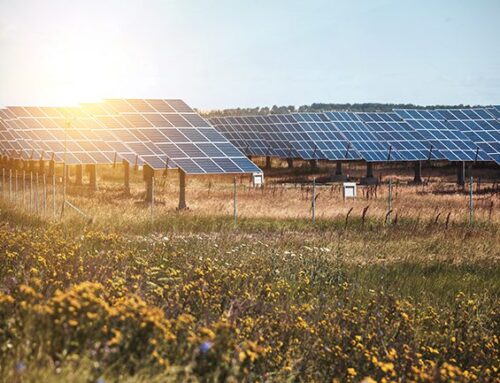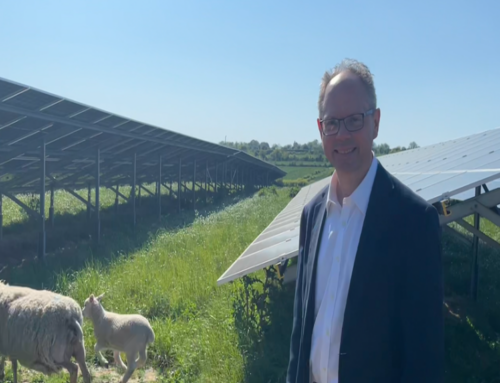Under Trump, clean energy stocks are outperforming
May 1, 2025
A lot has been said about the remarkable changes taking place under U.S. President Donald Trump’s second term. One impact that may have escaped much notice: Renewable energy stocks are stirring.
Mr. Trump has dismissed the importance of climate change and embraced the importance of oil, natural gas and coal as crucial energy sources under the mantra “drill, baby, drill.”
For all the bluster, though, renewable energy stocks have outperformed major indexes since his inauguration in January and are destroying some of the biggest names in oil and gas production.
The iShares Global Clean Energy ETF has risen 4.2 per cent since the start of Mr. Trump’s second term.
If that doesn’t generate much excitement, consider that the exchange-traded fund – which provides exposure to renewable electricity producers and companies that make equipment for wind, solar and hydroelectric generation – has beaten the blue-chip S&P 500 by 11.5 percentage points over the same period.
Perhaps more impressive: Renewables have outperformed Exxon Mobil Corp. XOM-N and BP PLC BPAQF, the Britain-based energy producer that has slashed spending on renewables and aims to boost oil and gas production in the United States by 50 per cent by 2030.
Is it great to be green again?
If renewables are in the early stages of a comeback, it’s a quiet recovery so far.
Wood Mackenzie, the energy consultancy, declined to comment for this story.
Northland Power Inc., a Canadian company that owns and develops solar, wind power and battery energy storage, did not respond to questions. Nor did Canadian pension fund giant Caisse de dépôt et placement du Québec, which has invested in renewable energy assets.
Reticence to discuss the sector’s performance under Mr. Trump’s second term is understandable.
Its recent gains have occurred over a relatively brief period, and the rebound has been modest: Despite an encouraging start to the year, the iShares global clean energy fund (the Canadian version is the BMO Clean Energy Index ETF, which is priced in Canadian dollars) is still down more than 60 per cent from its high in 2021.
As well, the performance of some key stocks within the renewables sector has been uneven. The share prices of Vestas Wind Systems A/S, First Solar Inc. and Enphase Energy Inc., for example, are down this year and still struggling near multiyear lows.
This suggests that there is no discernable upsurge in investor enthusiasm after soaring costs and lengthy production delays skewered interest in the sector under then-president Joe Biden’s climate-friendly policies.
Mr. Trump, who has called climate change a hoax, is no ally of windfarms. But that might not matter, for several reasons that tap into the long-term arguments for global growth of wind power, solar and hydroelectricity.
For one thing, renewable energy is competitive, which virtually assures its expansion. In 2023, 81 per cent of large, newly built renewable energy projects had lower costs than fossil fuel-fired alternatives, according to a 2024 report from the International Renewable Energy Agency.
For another, the buildout of data centres is stoking urgent demand for more electricity capacity to power them. Some observers expect that all sources will be needed, including renewables.
And lastly, the beaten-up share prices of renewables may be attractive to investors who like cheap and out-of-favour stocks. Renewables may be especially attractive when U.S. economic activity is deteriorating, buttressing demand for what is essentially a long-term defensive sector.
When the Caisse announced a deal in February to buy Innergex Renewable Energy Inc. – which owns and operates hydroelectric facilities, wind farms, solar farms and energy storage facilities in Canada, the United States, France and Chile – at a 58-per-cent premium to the stock’s previous closing price, analysts said the takeover supported the belief that the stock market was undervaluing renewable energy assets.
The stock market might be coming around to this opinion, if fitfully. The encouraging take-away for investors who want to bet on clean energy: Mr. Trump might not like wind farms, but no one seems to care.
Search
RECENT PRESS RELEASES
Related Post

![POWER Digest [May 2025]](https://stockwatchindex.com/wp-content/uploads/2025/05/battery-storage-lightshift-energy-2025-01-23-at-90439am-revg8c-500x383.png)


